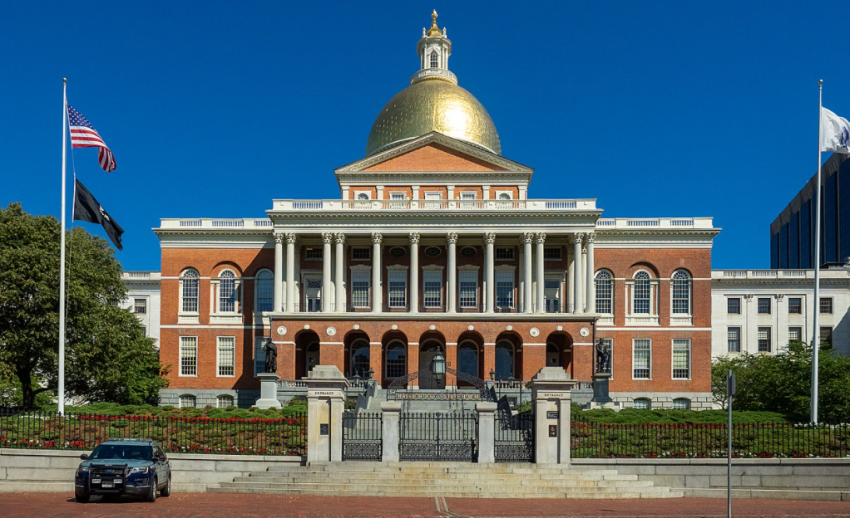Massachusetts abortion bill becomes law as state senate overrides Baker's veto

A Massachusetts abortion bill known as the ROE Act has become law as both houses of the state legislature have overridden Republican Gov. Charlie Baker’s veto of the measure.
On Tuesday, just one day after the Massachusetts House of Representatives voted to override Baker’s veto, the Massachusetts Senate followed suit. Thirty-two of the state’s 40 senators voted to override Baker’s veto, far exceeding the two-thirds threshold needed to nullify a gubernatorial veto.
Baker vetoed the bill last week, citing concerns about “the sections of this proposal that expand the availability of later-term abortions and permit minors age 16 and 17 to get an abortion without the consent of the parent or guardian.” However, Baker expressed support for other portions of the bill that would codify a right to abortion into state law and permit abortions after 24 weeks gestation in cases of a fatal fetal anomaly.
Additionally, the ROE Act enables physician assistants, midwives and nurse practitioners to perform abortions and removes a provision in Massachusetts law banning the use of late-term abortion procedures “designed to destroy the life of the unborn child or injure the unborn child in its mother’s womb.”
The pro-life group Massachusetts Citizens for Life warned on Twitter that the bill eliminated “basic standards of care for women, legal protection for our underage daughters requesting surgical procedures, and requirements that physicians provide medical treatment to newborn infants.”
In #MA, thanks to NARAL & pro-abortion lobbyists, we're actually leaving behind:
— MA Citizens for Life (@MassProLife) December 30, 2020
? basic standards of medical care for women
? legal protection for our underage daughters requesting surgical procedures
? requirements that physicians provide medical treatment to newborn infants https://t.co/2d1Kop2SdM
In response to the passage of the ROE Act, Myrna Maloney Flynn, president of Massachusetts Citizens for Life, slammed the legislature for ramming “this damaging bill through during Covid, inserting it into the state budget, knowing our opposition could not fight it in person due to quarantine restrictions.” “While we pause today to grieve for the many lives that will be severely damaged and lost as a result of the ROE Act, we anticipate, much as abolitionists did, the inevitability of a brighter tomorrow.”
Flynn vowed that the passage of the ROE Act would not deter her organization from continuing its mission: “We look forward to continuing our work alongside the citizens of Massachusetts, who already know the value of human life and are eager to educate and support others and to ultimately illuminate the inherent right to life of the unborn. As we have done since January 23, 1973, Massachusetts Citizens for Life will work tirelessly to make abortion unthinkable. And we will prevail.”
Meanwhile, the Planned Parenthood Advocacy Fund of Massachusetts reacted favorably to the development. Taking to Twitter, the pro-abortion group touted Massachusetts as “the first state to legislatively ease burdensome restrictions on young people’s access to care, ensuring 16 and 17-year olds will no longer be forced to obtain a parent’s permission or ensure a shame-inducing court process to receive abortion care.”
“True reproductive freedom means everyone is empowered to make decisions about their own bodies & health care, free from medically unnecessarily barriers, free from medical racism & discrimination, & free from political interference. Now, MA is one stop closer to achieving reality,” it added. “This is an incredible victory, both for Planned Parenthood patients and people across the Commonwealth, and is thanks to the tireless work of so many advocates, patients, lawmakers, doctors, and more.”
Following the passage of the ROE Act, Massachusetts will join 13 other states that have codified a right to abortion into state law that would remain in effect should the Roe v. Wade Supreme Court decision legalizing abortion nationwide be reversed. According to the pro-abortion Guttmacher Institute, the others are California, Connecticut, Delaware, Hawaii, Illinois, Maine, Maryland, Nevada, New York, Oregon, Rhode Island, Vermont and Washington.
Additionally, Massachusetts will become the ninth state that does not have any gestational limits on abortion. The others are Alaska, Colorado, New Hampshire, New Jersey, New Mexico, New York, Oregon and Vermont.
The ROE Act is one of several measures implemented by blue states in recent years to liberalize abortion laws. New York, Rhode Island and Illinois were among the states that passed similar legislation last year while lawmakers in New Jersey introduced the Reproductive Freedom Act following President Donald Trump’s nomination of Amy Coney Barrett to the Supreme Court, citing concern about the possible overturning of Roe v. Wade.



























